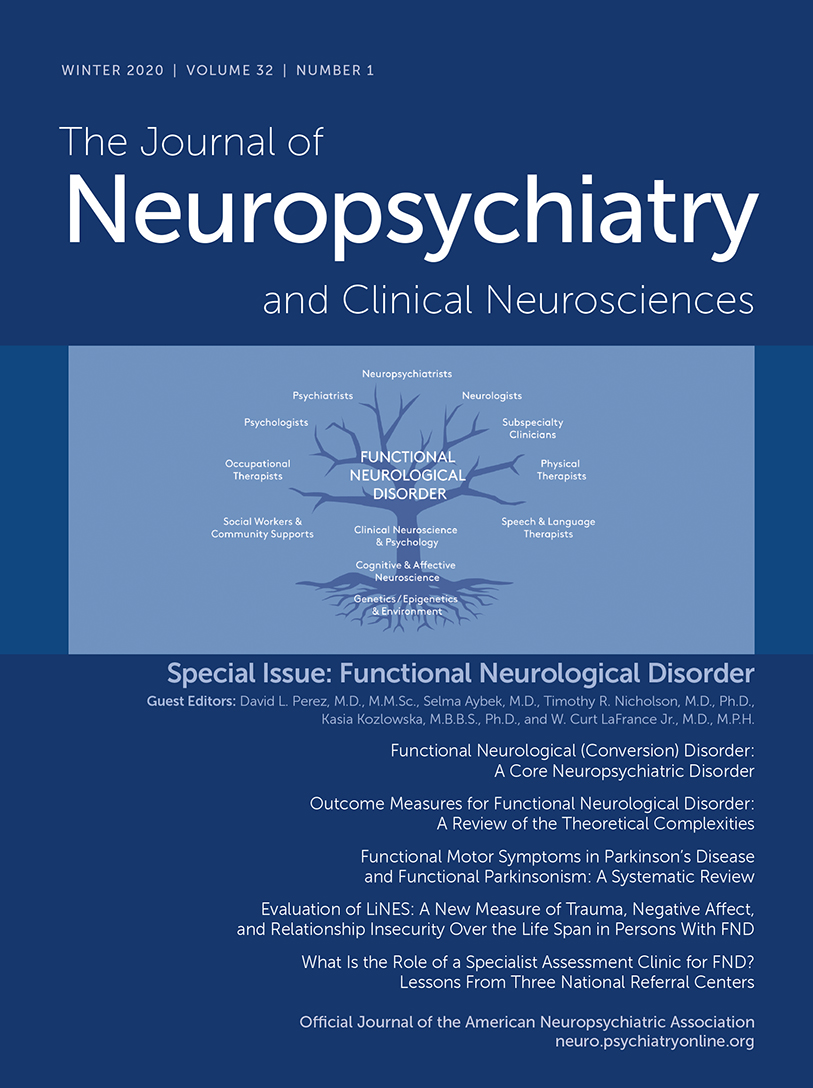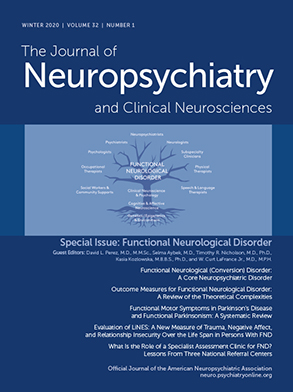On the basis of the neurobiological considerations described above, a line of reasoning for harnessing placebo effects as treatment for patients with FND is quite straightforward. If amygdala hyperactivity and abnormal connectivity are critically implicated in FND pathophysiology, then leveraging placebo effects to modulate the amygdala and its connected brain network might improve symptoms and potentially modify the disorder. When this mechanistic rationale is combined with numerous anecdotal clinical reports of high placebo responsiveness in FND and limited existing treatment options, this presents a very promising therapeutic opportunity. However, the logistics of how to translate placebo effects to patients with FND in clinical practice are fraught with complicated ethical considerations. The ethical arguments for and against this have been extensively discussed elsewhere (
6,
7) and primarily involve principles of informed consent, autonomy, nonmaleficence, beneficence, and justice.
The relevant ethical considerations vary, depending on the approach for delivering placebo effects in FND, which can be broadly divided into three main categories: deceptive use of placebo, “open-label”/honest placebo, and extracting principles of placebo effects to strengthen the therapeutic encounter. Most clinicians and treatment providers would likely consider the latter two options as ethically permissible. In fact, we suggest that applying principles of placebo effects is already firmly embedded in current best-practice models of FND diagnosis delivery and explanation (
17). Most notably, this includes the fundamental component of emphasizing reversibility and potential for symptom resolution (
17), which promotes strong positive expectations and cognitive framing akin to placebo effects. Fully transparent, “open-label” administration of placebo is conceptually challenging but has shown preliminary promise in chronic pain conditions (
18). This stream of placebo research is still in its relative infancy, and dialogue for how to best introduce placebo in this context and proposed mechanisms of action continue to evolve. Finally, arguments on well-intentioned but deceptive or misleading use of placebos, including “pure” (completely inert, e.g., sugar pill or saline injection) or “impure” (biologically active but probably not useful, e.g., subthreshold dosages of medications), are much more controversial. Most portray this approach as prohibitively problematic as a result of violations of autonomy and consent (
7); however, others question the lines defining “deceit” and that treatment providers may be able to defend themselves by saying that “this treatment works through various networks in the brain, the particulars of which no one fully understands.’’ (
19) As summarized by Rommelfanger (
6), the American Medical Association recommends against the deceptive use of placebo on the basis of defining placebo as a substance that has “no specific pharmacologic effect upon the condition being treated.” However, as described previously, placebo effects could legitimately have a “specific” effect for FND and thus raises questions as to whether such recommendations should apply in this situation.

